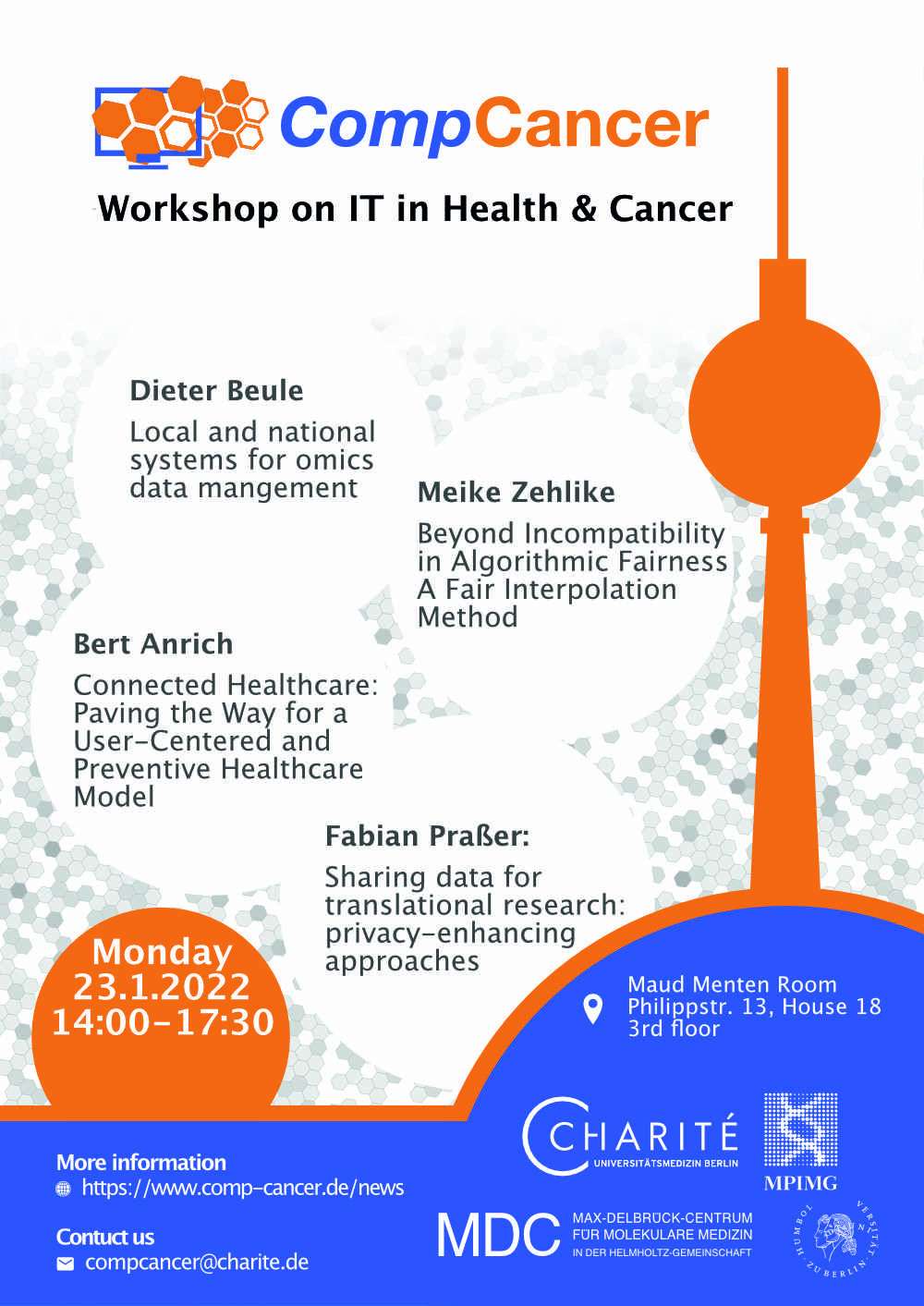Monday, 23.1.2023, 14:00-17:30
Berlin-Mitte, Philipstr. 13, Haus 18 (Leonor Michaelis Haus), 3rd floor, Maud Menten Hall
Programme:
14.00 Ulf Leser: Welcome
14.10 Dieter Beule: Local and national systems for omics data mangement
14.50 Bert Arnrich: Connected Healthcare: Paving the Way for a User-Centered and Preventive Healthcare Model
15.30 Break
16.00 Meike Zehlike: Beyond Incompatibility in Algorithmic Fairness -- A FAir Interpolation Method
16.40 Fabian Praßer: Sharing data for translational research: privacy-enhancing approaches
17.20 Wrap Up
17:30 End of workshop

Dieter Beule: Local and national systems for omics data mangement
Scientists employing large-scale omics in life science research face challenges in modeling of multi-assay studies, recording of relevant parameters, and managing resulting large data volumes with complex metadata. We introduce SODAR, the system for omics data access and retrieval, that helps to address some of these challenges. Furthermore, we discuss emerging national infrastructures for sharing data omics data across sites.
Bert Arnrich: Connected Healthcare: Paving the Way for a User-Centered
and Preventive Healthcare Model
Connected Healthcare aims to pave the way for transforming healthcare systems from purely managing illness to maintaining wellness. Ubiquitous sensing and computing technologies are foreseen as the key enabler for pushing the paradigm shift from the established provider-centric healthcare model to a user-centered and preventive overall lifestyle health management that is available everywhere, anytime and to anyone. In this talk we will provide examples of the three pillars of success: unobtrusive sensing technology, adequate data processing and modeling, and persuasive human-computer interfaces.
Meike Zehlike: Beyond Incompatibility in Algorithmic Fairness -- A FAir Interpolation Method
Trustworthy AI becomes ever more important, both in machine learning and in the law. One important consequence is that decision makers must seek to guarantee a `fair', i.e., non-discriminatory, algorithmic decision procedure. However, there are several competing notions of algorithmic fairness that have been shown to be mutually incompatible under realistic factual assumptions. This concerns, for example, the widely used fairness measures of ‘calibration within groups’ and ‘balance for the positive/negative class’. Indeed, the COMPAS algorithm, which predicts recidivism risk of criminal offenders, exhibits racial bias according to the balance metrics, but not regarding calibration.
In this talk, I present a novel algorithm (FAIM) for continuously interpolating between these three fairness criteria. Thus, an initially unfair prediction can be remedied to at least partially meet a desired, weighted combination of the respective fairness conditions. The algorithm relies on methods from the mathematical theory of optimal transport. We demonstrate the effectiveness of our algorithm when applied to synthetic data, the COMPAS data set, and a new, real-world data set from the e-commerce sector. Finally, I discuss to what extent FAIM can be harnessed to comply with conflicting legal obligations. The analysis suggests that it may operationalize duties in traditional legal fields, such as credit scoring and criminal justice proceedings, but also for the latest AI regulation put forth in the EU, like the recently enacted Digital Markets Act.
Fabian Praßer: Sharing data for translational research: privacy-enhancing approaches
Data sharing and the re-use of health data for secondary purposes have become a core elements of biomedical research, resulting in complex privacy challenges. Ideally, generic solutions would allow researchers to integrate and process biomedical data on a large scale, while citizens and patients can exercise their right to privacy and control what happens to their personal data. However, there are inherent trade-offs and technical solutions typically require balancing conflicting objectives: (1) privacy protection and (2) usefulness. Both objectives can be broken down into several further aspects. First, the term "privacy protection" can relate to a wide variety of different guarantees or degrees of control that can be provided. Second, the term "usefulness" may refer to the quality of data or results, to the flexibility with which users can perform analyses or to the scalability of platforms. In this talk, we will provide an overview of different properties that translational research data platforms can have and analyze common approaches.
